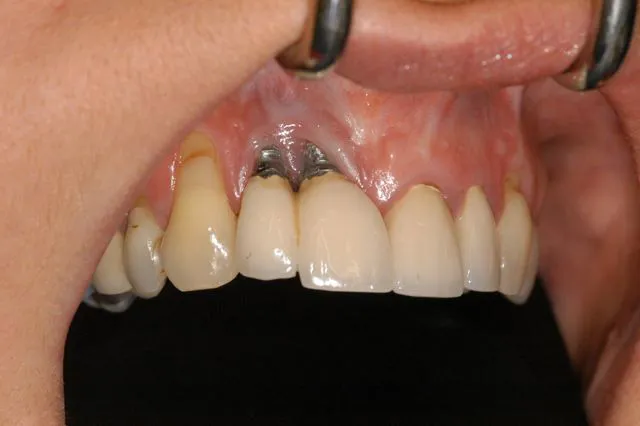Dental implants have revolutionized the field of dentistry, providing a durable and aesthetically pleasing solution for individuals with missing teeth. While these implants boast a high success rate, it’s essential to understand that complications can arise. In this comprehensive guide, we will explore the most common problems associated with dental implants, including their causes, symptoms, and potential solutions.
Table of Contents
1. Introduction
Dental implants have become the gold standard for tooth replacement, offering a natural look and feel that other options, such as dentures or bridges, often can’t match. These titanium wonders serve as artificial tooth roots, providing a sturdy foundation for crowns, bridges, or dentures. However, despite their success rate, dental implants are not entirely immune to problems.
2. Common Problems with Dental Implants
a. Infection
Cause: Infections can occur at the implant site during the healing phase or later due to poor oral hygiene.
Symptoms: Swelling, pain, redness, or discharge from the implant area.
Solution: Prompt treatment with antibiotics and improved oral hygiene.
b. Osseointegration Issues
Cause: Failed fusion of the implant with the jawbone due to factors like smoking, insufficient bone density, or infection.
Symptoms: Implant mobility, pain, or discomfort.
Solution: Revision surgery or bone grafting to enhance osseointegration.
c. Peri-Implantitis
Cause: Similar to gum disease, peri-implantitis is inflammation of the tissues surrounding the implant.
Symptoms: Gum recession, bleeding, and bone loss around the implant.
Solution: Scaling and root planing, antibiotics, and possible surgical intervention.
d. Implant Fracture or Breakage
Cause: Excessive force or trauma can lead to implant fracture or breakage.
Symptoms: Pain, mobility, or discomfort.
Solution: Implant replacement in severe cases.
e. Nerve Damage
Cause: Injury to nearby nerves during surgery.
Symptoms: Numbness or tingling in the lips, tongue, or chin.
Solution: Typically temporary, but it may require time for nerves to heal.
f. Implant Rejection
Cause: Rarely, the body may reject the implant as a foreign object.
Symptoms: Implant failure or discomfort.
Solution: Revision surgery with a different implant material may be necessary.
3. Causes of Dental Implant Problems
Understanding the factors contributing to dental implant issues is crucial for prevention and management. Common causes include:
- Poor Oral Hygiene: Inadequate care can lead to infections and peri-implantitis.
- Smoking: Smoking can impede healing and increase the risk of implant failure.
- Medical Conditions: Certain medical conditions and medications can affect implant success.
- Inexperienced Surgeons: Choosing a qualified implant specialist is vital.
- Insufficient Bone: Inadequate bone density may hinder osseointegration.
4. Symptoms to Watch For
Timely recognition of potential problems is key to successful implant management. Look out for symptoms such as:
- Pain or Discomfort: Persistent pain around the implant.
- Swelling: Swelling, redness, or inflammation near the implant site.
- Mobility: If the implant feels loose, it may indicate a problem.
- Gum Issues: Receding gums, bleeding, or pus around the implant.
5. Prevention and Maintenance
To minimize the risk of dental implant problems, follow these guidelines:
- Oral Hygiene: Maintain excellent oral hygiene practices.
- Regular Check-Ups: Visit your dentist for routine implant examinations.
- Quit Smoking: If you smoke, consider quitting to improve healing.
- Healthy Lifestyle: Adopt a lifestyle that supports good overall health.
- Choose a Qualified Provider: Ensure your implant surgeon is experienced and reputable.
6. FAQs
Q1. Are dental implant problems common?
A1. No, dental implant problems are relatively rare. The majority of patients experience successful outcomes.
Q2. Can dental implant problems be fixed?
A2. Yes, most problems can be addressed with prompt intervention, such as antibiotics, revision surgery, or other treatments.
Q3. How long do dental implants last?
A3. With proper care, dental implants can last a lifetime.
Q4. What can I do to prevent dental implant problems?
A4. Maintaining excellent oral hygiene, quitting smoking, and regular check-ups are essential for prevention.
Q5. Is dental implant surgery painful?
A5. Discomfort during dental implant surgery is managed with anesthesia, and post-surgery pain is usually manageable with prescribed medications.
In conclusion, while dental implants offer a highly successful solution for missing teeth, it’s essential to be aware of potential problems and take steps to prevent and address them. Regular dental check-ups and good oral hygiene practices are your best allies in ensuring the longevity and success of your dental implants.
7. Conclusion
In conclusion, while dental implants offer a highly successful solution for missing teeth, it’s essential to be aware of potential problems and take steps to prevent and address them. Regular dental check-ups and good oral hygiene practices are your best allies in ensuring the longevity and success of your dental implants. By understanding the common issues, their causes, symptoms, and available solutions, you can make informed decisions about your dental implant care, ultimately enhancing your oral health and quality of life. Also you can get help with us in Kakar’s pediatric dentists in Falls church.Â
